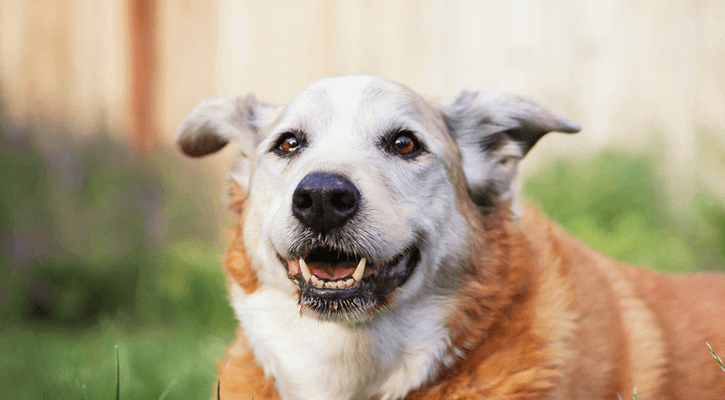
End of Life Care
Saying goodbye to a beloved pet is never easy. We’re here to help make the transition as calm and as respectful as possible. We’ll answer all your questions regarding our euthanasia procedure, and we’ll be completely transparent, sharing as much or as little information as you’d like. A lit candle in our waiting area means that someone is in our comfort room saying goodbye to a cherished pet.
Knowing When It’s Time
We don’t expect you to make this decision alone. Your Mountainside veterinarian can help you understand your pet’s condition and prognosis. We’ll create a treatment plan for pain and symptom management to help your pet maintain an optimal quality of life for as long as possible.
Dedicated Comfort Room
One room in our hospital is reserved for those saying goodbye, those who want to spend time with a hospitalized pet, or those who need some time to process an upsetting diagnosis. We keep our comfort room dimly lit, and the room’s fireplace provides soothing warmth. You’re invited to spend as much time as needed with your pet.
Other Considerations
When the time comes, we’ll help you make arrangements for cremation, burial, or other services with area providers, including Valley Pet Crematory and Peaceful Passage.
As your pet enters the senior stage of their life, we can advise on their changing needs and keep track of their health status. Our full-service team is here when you need us the most.
As they get older, cats and dogs have different needs to keep them healthy. Get high-quality emergency and sick care for your senior cat or dog when you need it. We’re with you every step of the way.
Aging pet considerations and resources
We recommend nose-to-tail exams at least every 6 months as dogs and cats get older. Generally starting around 8-10 years of age for cats and 6-8 years of age for dogs.
We recommend baseline metabolic screening and often annual or biannual testing for our pets as they age. Sometimes more frequent veterinarian services are required if they already have underlying disease conditions.
Why is this recommended?
- Acknowledges and enhances the human-animal bond
- Promotes early detection of abnormalities
- Promotes optimal and individualized medical care that may enhance the quality of life and promote longevity
- Helps assess and address: weight, orthopedic, behavioral, and metabolic changes
Resources on senior pets, quality of life, and pet grief:
- Quality of Life Scale – A guide for the aging and chronically ill pet
- Senior Cat Symptom Checklist
- Senior Dog Symptom Checklist
- AVMA senior pet FAQ – American Veterinary Medical Association (AVMA)
- Helping Your ‘Good Old Dog’ Navigate Aging – NPR Interview
- Loving Care for Older Cats – Cornell Feline Health Center
- “How will I know it’s time?” – Lap of Love
- Pet Quality of Life – Lap of Love
- At-home hospice and euthanasia services – Lap of Love
- Grey Muzzel App – Lap of Love
Losing your companion
It can be incredibly hard to lose a beloved pet. We share our lives and hearts with our companions and they’re always there when we need them. We understand the strong bond between you and your pet. It is a gift and we want to offer you all the support you need during this difficult time.
Losing a pet is a deeply emotional experience, and everyone grieves differently. Please let us know if there’s anything else we can do to make the transition more comfortable or individualized for you and your pet.
End-of-Life Care for Pets Near You
Pet owners in the Reisterstown, Maryland, area trust Mountainside Veterinary Hospital for end-of-life care for pets. Make An Appointment today or call us at (410) 833‑8085.
